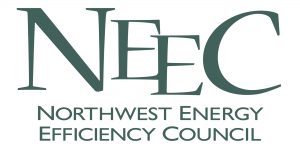Reprinted from E&E Daily with permission from Environment & Energy Publishing, LLC. www.eenews.net. 202/628-6500
Emily Holden, E&E reporter
Published: Monday, May 4, 2015
States could benefit from a “modular” approach to regional coordination on the Clean Power Plan that would allow them to trade credits for renewable energy, energy efficiency and re-dispatch to natural gas, according to a report commissioned by the Western Interstate Energy Board.
The study, from the consulting firm Cadmus, concludes that states having a hard time meeting their individual carbon-reduction goals could save money by buying credits from states that are better positioned, rather than investing directly in their own emissions-cutting measures. And they wouldn’t necessarily need to formally submit plans together, negating the possible need for Congress to sign off on proposals to make them binding.
“The partial multi-state modular approach where two states collaborate on one element of their plan in a formal manner … is a really good mechanism because you can get the benefits of a multi-state approach without having to negotiate and engage in stakeholder discussions on every element of your plan,” said Kate Wilson, a co-author of the report.
EPA’s draft rule requires each state to write a plan to cut carbon emissions by a certain amount by 2030, to total a 30 percent reduction nationwide. The regulation says states can work together, but it does not clearly address this kind of modular strategy. Researchers in other parts of the country have been looking into similar options (ClimateWire, March 17).
Among the highlights, Cadmus found that an existing renewable energy credit, or REC, tracking platform in the West, WREGIS, could work well for swapping credits for reducing power use with energy efficiency programs.
The system could include a special marker on credits that are eligible as compliance methods under EPA’s guidelines. WREGIS already uses markers to identify credits that are compatible with the California Independent System Operator’s requirements, Wilson said.
Cadmus said states could also benefit from trading credits for re-dispatching to natural gas, or running existing natural gas plants more to limit the need for coal-fired plants. The group explored the “buy versus build” decision many states might face under the Clean Power Plan.
Concerns about double-counting
Researchers looked at how one fuel-diverse state could sell re-dispatch credits to another coal-reliant state. They found that working independently, the two states could cut 3.3 million tons of CO2 at $45.47 per megawatt-hour. Working together, they could reduce nearly five times as much carbon — 15.1 million tons — at a higher cost of $56.10 per megawatt-hour.
But states will still have to weigh how those compliance costs compare to their other options.
There are some roadblocks to the modular approach. Wilson said states would have to sort out how to quantify the emissions reductions achieved from investing in renewable energy or cutting back on power use. And they will need to develop consistent definitions for what counts and get those terms approved by EPA.
Wilson cautioned that there is a higher potential for double-counting credits, which EPA will not allow. The risk occurs if some states use a rate-based standard — and cut the amount of carbon emitted per megawatt-hour of power produced — while others use a mass-based standard and cap the total tons of carbon emissions allowed.
Cadmus presented the report last week to WIEB’s State Provincial Steering Committee, a mix of representatives from agencies and utility commissions in WIEB’s 11 states: Arizona, California, Colorado, Idaho, Montana, Nevada, New Mexico, Oregon, Utah, Washington and Wyoming.
Watch the recorded webinar on the report:http://westernenergyboard.org/spsc/spsc-webinars/past-webinars/
Download the report here: http://www.cadmusgroup.com/papers-reports/clean-power-plan-west/
